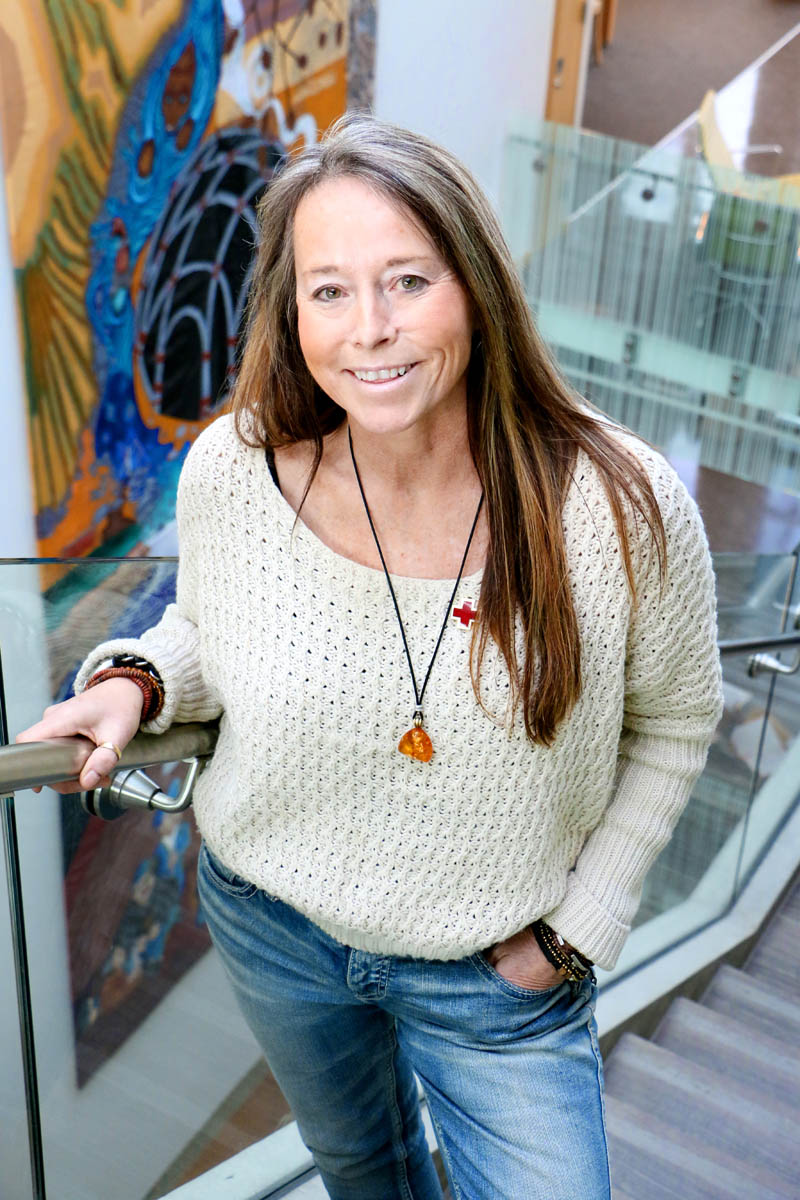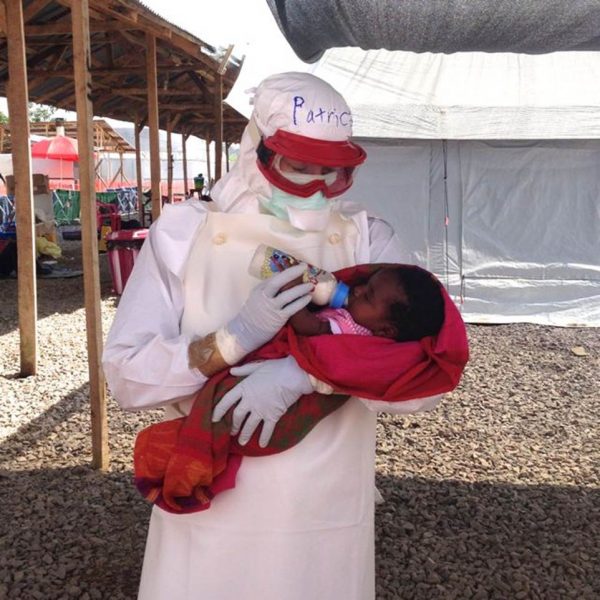She travels thousands of miles to help people in some of the poorest places on the planet.
Nurse practitioner Patrice Gordon has seen the face of Ebola in Sierra Leone, bodies crushed by buildings that crumbled during an earthquake in Nepal and exhausted refugees fleeing to Bangladesh to escape violence in Myanmar. As a member of the Canadian Red Cross’s Emergency Response Unit, she has gone into places where most people would balk or outright refuse.

Patrice Gordon
But Gordon sees need and responds. Her nursing training has prepared her to jump in, whether it’s treating people in poverty zones, as a trauma nurse with the Canadian military in Afghanistan or in an emergency room in New Zealand.
When she’s in Canada, the Rossland-born Gordon travels among eight Indigenous communities in the Chilcotin where she lives with her husband and pets.
She took her first step into a career that would take her around the globe when she was 19 years old, a single mom with a baby boy. She wanted to be an astronaut and a pilot, but she needed a realistic job for the time being.
“I didn’t really see myself as a nurse. But it was a way to support my son,” she said Thursday before speaking to an audience at TRU about her travels and work on behalf of the Canadian Red Cross.
With her mother’s help, breastfeeding between classes and little sleep, she got her diploma. And nursing turned out to be a better fit than she imagined. After six years of working at hospitals in Vancouver, she quenched her thirst for travel by using her nursing skills in a pediatric hospital in New Zealand, where she worked for four years.
Gordon then returned to Canada and signed up to get her nursing degree online through what was then Open University–now TRU Open Learning.
“I was particularly interested in emergency and critical care,” she said. By then she had three sons, the youngest still in diapers. The flexibility of studying online made getting her degree easier, even while she was still working as well.
“I could do it when it fit me. That flexibility is absolutely what made it possible,” she said.
“The amazing thing about the nursing profession is there are countless things you can do. You can take your passion and fit nursing into it.”
When her boys were old enough to be on their own, she joined the Canadian military in Afghanistan, where she treated a young Taliban man named Mohamed who touched her heart. She still tears up thinking about him.
“I’ll never forget him. His last words, when he was being carted off to Guantanamo Bay, were ‘I’ll never forget you.’”

Patrice in Sierra Leone with an infant in the Ebola hot zone. Photo credit: Canadian Red Cross
The military was too polarized for Gordon – she didn’t like that it was us and them–but her love of travel and helping people in dire circumstances made her realize she wanted to do more work overseas. She found the Canadian Red Cross and is now a member of their Emergency Response Unit.
Gordon got her Master of Nursing from Athabasca University and has been working as a nurse practitioner in the Chilcotin, where she lives with her husband, dogs, cats and horses, and serves eight Indigenous communities. But when disaster strikes, she gets an email or a phone call from the Red Cross.
In 2015, she spent five weeks in Sierra Leone treating people in the Ebola hot zone. She went in November, but spent the months before departing watching the news and feeling desperate.
“Sitting at home and watching that nightmare was so painful,” she said.
It was a no-touch zone, which was devastating in such an emotionally intense atmosphere, but was necessary. Suiting up in protective gear required a dresser who helped medical staff to make sure they were fully protected. Then the staff checked each other over. There was no taking chances because the virus is so volatile.
When she returned to Canada, she came down with a fever which turned to be nothing, but it still landed her in quarantine for three weeks. She was kept in isolation at Kelowna General Hospital, then in a hotel room—an enormous contrast after Africa. She celebrated Jan. 1, 2015, in the hospital room being told she was finally cleared to go home.
Gordon has seen nursing change dramatically during her career. There are so many areas where people have passions, whether it’s music, sports or travel, that can be parlayed into a nursing career, she said.
For a young mother who wanted to be an astronaut, she has managed to see much of her planet without going into space.
She remembered the lyrics from a Kris Kristofferson record her mom used to play. The words still go through her mind, often. “I’d rather be sorry for something I’ve done than for something that I didn’t do.”
No regrets. She has none.

